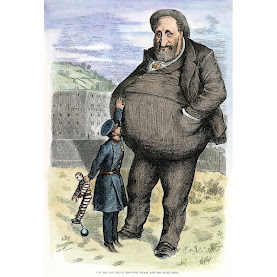I read somewhere on social media that a certain percentage of people who returned their shopping carts to the chorale situated in the parking lots of retailers are more successful than those who don't. I don't recall the exact numbers but they overwhelmingly favored the cart returners, of course.
How do they know this?
Is there any conceivable way an accurate number can be given regarding these arbitrary statistics. I've never seen people in parking lots wearing white shirts and thin neckties, holding a clipboard and asking shoppers about their income. Certainly, no one has ever approached me in a Kroger parking lot to ask about about my personal success and if they did I would either lie to them or respectfully refuse to answer. Has anyone ever received a phone call from Tass news agency concerning shopping carts?
Regarding the subject, nowhere is it required that a person must place there used cart in the chorale. The service is provided as a convenience but not required. But some shoppers think it repugnant that a person would not participate in the practice. One comment from Reddit said,
"People that don't return their shopping carts to the cart return are probably horrible people."
That's a very strong and presumptuous remark. I define a "horrible" person as someone who is a criminal, thief, abuser, swindler or con-man. But not returning a shopping cart?
I must admit, at the risk of being villainized, I don't always return the cart. If I've had a long day, and I'm tired, it's hot and I want to get home, and the corral is not close, I just might decide let the employees do it.
I remember when I was a sacker for a grocer in high school, one of my jobs was to retrieve carts from the parking lot which was part of my paid obligation. It was my job. My job put some money in my pocket. I was young and full of energy. I didn't mind doing it and in fact I was happy to get out of the store for a while and it wasn't the shopper's obligation to make make my job easier.
I also sacked peoples groceries, carried it to their car, and brought the cart back in with me. There wasn't a chorale to make my job easier. Now-a-days if a store employee retrieves carts is he considered being taken advantage of?
Is he being treated horribly?
People are also very divided on the subject of self-checkouts. Some feel they don't get paid to check out their own groceries; that's the checker's job. Right? Taking the shopping carts into consideration, how long will it be before shoppers who prefer to have the store employees check out the groceries are considered unsuccessful and horrible people?
There was also a time when service stations had attendants fill our tanks for us, wash our windshield and check the oil. One would be hard pressed today to find a full service station. Every gas station in my town is self-serve. If someone were to open a full service filling station, I think it would be very successful.
But I don't hear anyone complaining how they don't get paid to pump their own gas.
Would companies have to hire more sackers, checkers, and gas station attendants to do the work instead of putting customers to work? What wrong with that? We already pay enough for our things and now do they want me to make it easier on their bottom line?



